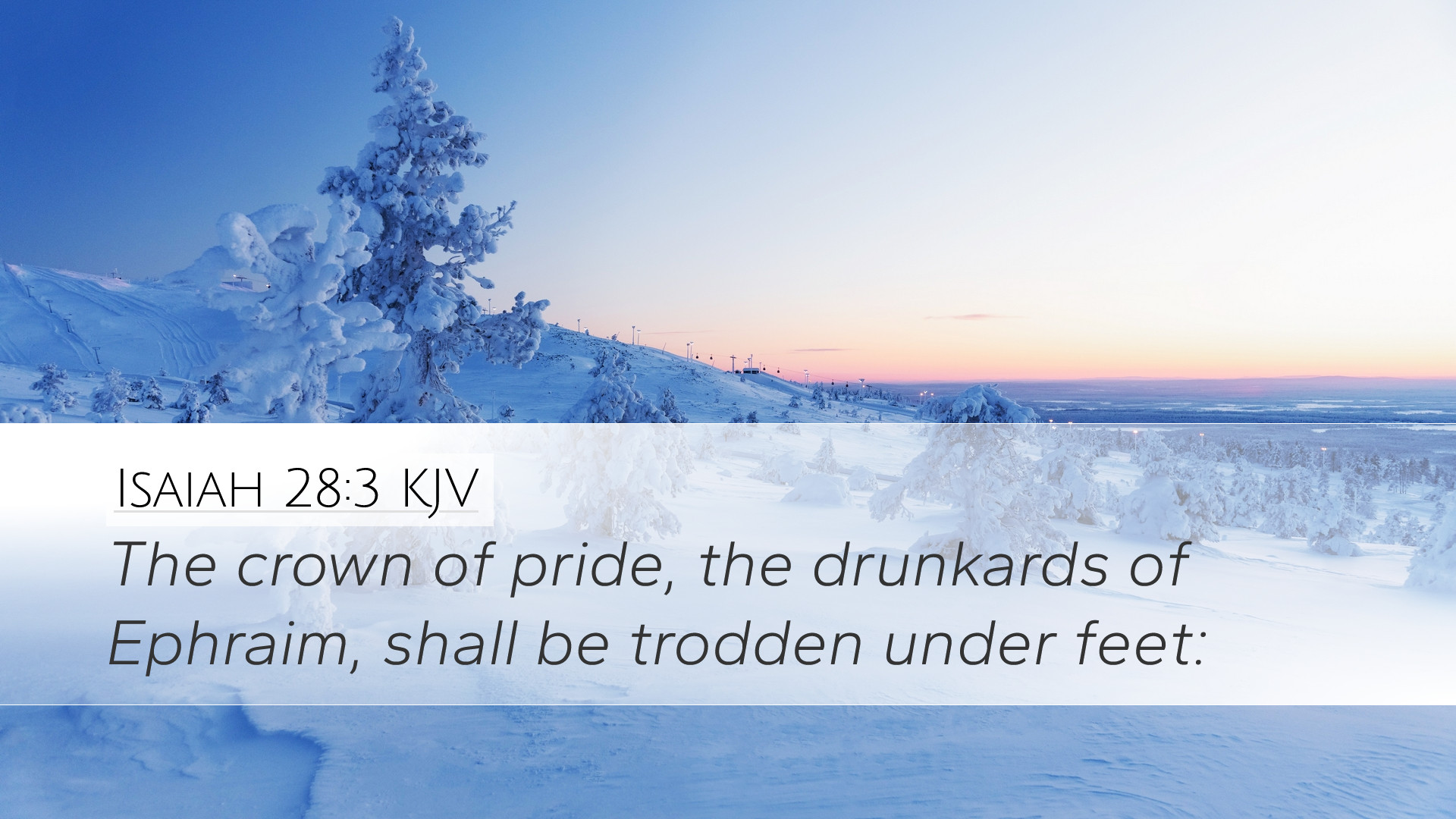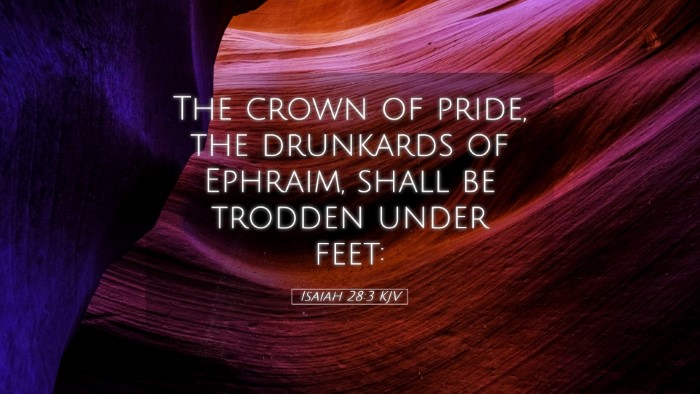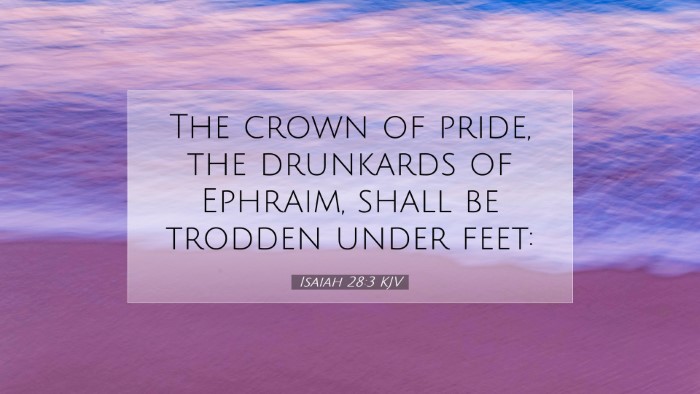Commentary on Isaiah 28:3
Bible Verse: "The crown of pride, the drunkards of Ephraim, shall be trodden under feet."
Introduction
This verse from the book of Isaiah serves as a poignant chapter in the prophetic literature, revealing God's impending judgment upon the proud and the careless. In this commentary, we will explore the depth of this verse, drawing insights from renowned biblical commentators, such as Matthew Henry, Albert Barnes, and Adam Clarke.
Contextual Analysis
Isaiah 28 is a pivotal chapter that reflects the sociopolitical and spiritual conditions of Israel, specifically Ephraim. The term "crown of pride" signifies the arrogance and false security of the leaders and the populace who engage in excess and debauchery. This verse reflects the theme of divine judgment, underscoring a significant biblical principle: pride goes before destruction.
Commentary Insights
1. Matthew Henry's Perspective
Matthew Henry emphasizes the consequences of national pride and moral decay among the people of Ephraim. He articulates that the "crown of pride" represents their lofty status, which ultimately leads to their downfall. Henry notes that wrestling with drunkenness symbolizes a lack of self-control, revealing a deeper spiritual stupor, which results in their inability to recognize impending judgment. He invites readers to reflect on how similar dynamics can manifest in contemporary society, leading to inevitable divine accountability.
2. Albert Barnes' Insights
Albert Barnes expounds on the symbolic meaning of "drunkards" in this context, linking alcoholism with moral and ethical depravity. He asserts that this term extends beyond physical drunkenness, indicating a state of being spiritually numb and unaware of God's righteous standards. Barnes highlights that the treading "under feet" signifies a complete subjugation and humiliation, indicating that what was once esteemed will become a disgrace. He warns modern believers to be vigilant against compromise and complacency, echoing the enduring relevance of Isaiah’s message.
3. Adam Clarke's Commentary
Adam Clarke provides a detailed analysis of the geographical and historical implications of Ephraim, the northern kingdom of Israel. He notes that the pride and self-sufficiency of this region particularly attracted God’s disfavor. Clarke remarks that this verse serves as a sober reminder of divine judgment that waits upon proud cities and nations, advising believers to examine their hearts for any hint of similar pride. In Clarke's view, the treading underfoot serves as a metaphor for God’s justice that seeks to humble the exalted.
Theological Reflections
The overarching theme of pride and its consequences is a deeply rooted biblical moral. This verse from Isaiah speaks to the heart of God's character as a just ruler who does not overlook sin. The message conveyed reaches past the ancient context, compelling modern readers, be they pastors, theologians, or students, to engage in self-examination regarding pride in their own lives and communities. The crucial lesson being imparted is that reliance on worldly status, rather than on divine grace, invites disaster and judgment.
Practical Applications
- Self-Examination: Individuals and churches are called to examine their attitudes and behaviors in light of God's holiness.
- Discernment: Believers should cultivate spiritual discernment to resist the allure of pride and excess that leads to moral degradation.
- Community Awareness: In a communal setting, fostering accountability among fellow believers is crucial in maintaining spiritual integrity.
- Preaching and Teaching: Pastors may focus on the dangers of pride in their sermons, emphasizing humility as a core Christian value.
Conclusion
Isaiah 28:3 serves as a stark reminder of the consequences that befall those who turn away from God and indulge in prideful living. With the insights drawn from the public domain commentaries of Matthew Henry, Albert Barnes, and Adam Clarke, we gain a multifaceted understanding of the spiritual implications embedded within this verse. This serves as a timely warning for all, urging a return to humility and reliance on God's grace, thereby refusing to be counted among the proud who ultimately face God's judgment.


